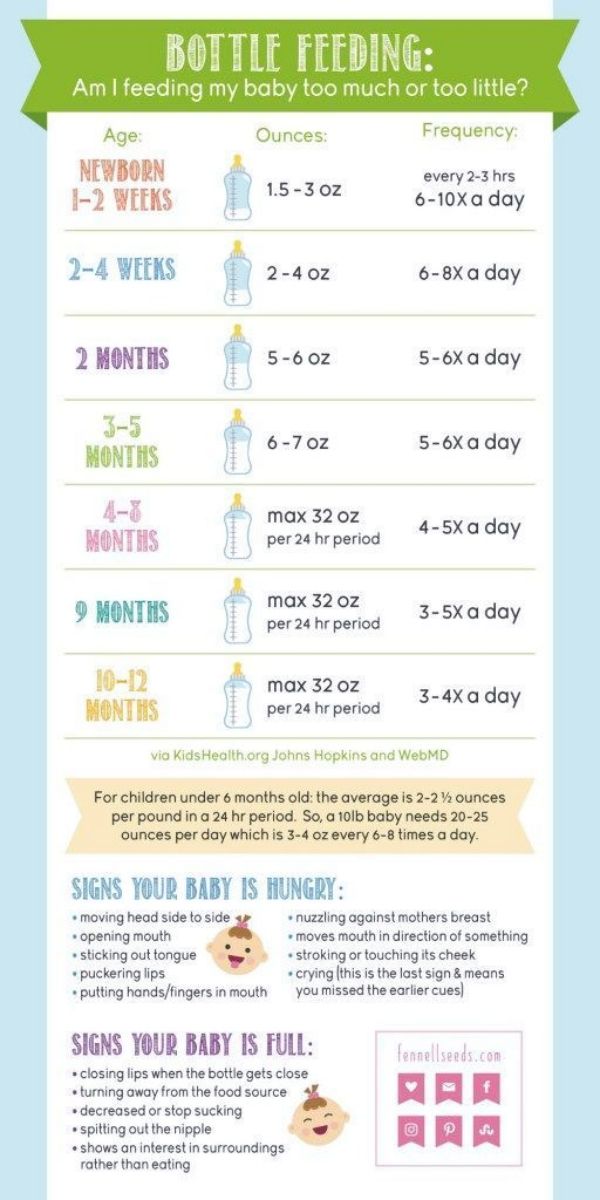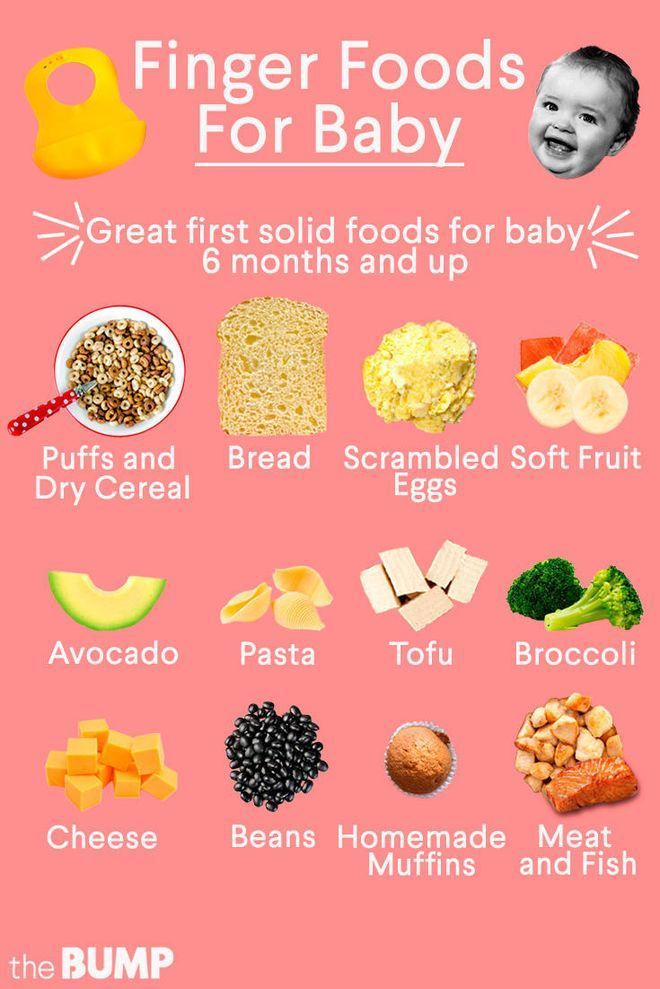Baby feeding at night instead of day
What is Reverse Cycling and Why Does it Happen?
Periods of reverse cycling can be challenging to navigate, but there are common reasons why it happens and solutions that may help.
Share this content
Baby Nurses More at Night? You Might be Reverse Cycling
Reverse cycling is a specific nursing pattern that often occurs around the four to six-month mark, though it could be a little earlier or later depending on several factors that may be driving this sudden change in your breastfeeding schedule. There are a few common reasons often attributed to why suddenly your baby nurses more at night, which include:
- Your parental leave ended and you returned to work. Whether your little one is enrolled in a daycare or is being cared for at home by a family member or nanny, you may not be the only one getting used to your back-to-work schedule - your baby might be adjusting to the change too! Reverse cycling frequently happens because he or she wants food, comfort, or both, and may not be getting as much as they desire of either because you are now away during much of the day.
Your baby may not drink as much breast milk during the day or may take just enough of their bottle to stay satisfied until you're with him or her again. When this happens, he or she may not be getting enough breast milk while you're away and will then nurse frequently overnight to "make up" for this deficit. This is not dangerous or necessarily a negative, so long as your baby is eating. Your little one may also become easily distracted in a daycare environment, leading them to be more interested in everything going on around them and less likely to be as interested in their bottle or eating. Finally, he or she may simply desire the soothing effect that comes with breastfeeding and wish to receive this comfort throughout the night, since they are adjusting to less time with you during the day.
- Your little one is going through a growth spurt. Quick, temporary phases of reverse cycling may occasionally happen simply because babies grow quickly! During periods of especially rapid growth and development, he or she may want to nurse more often than usual.
 When you finally have a set breastfeeding schedule, it can be challenging to see it suddenly thrown off - but rest assured that growth spurts typically don't last long.
When you finally have a set breastfeeding schedule, it can be challenging to see it suddenly thrown off - but rest assured that growth spurts typically don't last long. - Your baby is sleeping more during the day. This often goes hand-in-hand when you return to work - because your little one is getting most of their feedings when you are at home (typically during the evening and nighttime hours now), they then sleep more during the day without these regular nursing sessions. This pattern reverses your baby's sleep schedule and makes him or her more likely to be awake and alert overnight, which in turn keeps you awake overnight too!
What Can You Do When Baby Nurses More at Night?
If your little one is suddenly waking often throughout the night for feedings, it may be beneficial for yourself and others in your family for you to sleep with the baby nearby. A bassinet close to your bed or a toddler bed in your bedroom can be helpful for attending to your little one's needs quickly and then falling right back asleep, to encourage as much overnight rest as possible.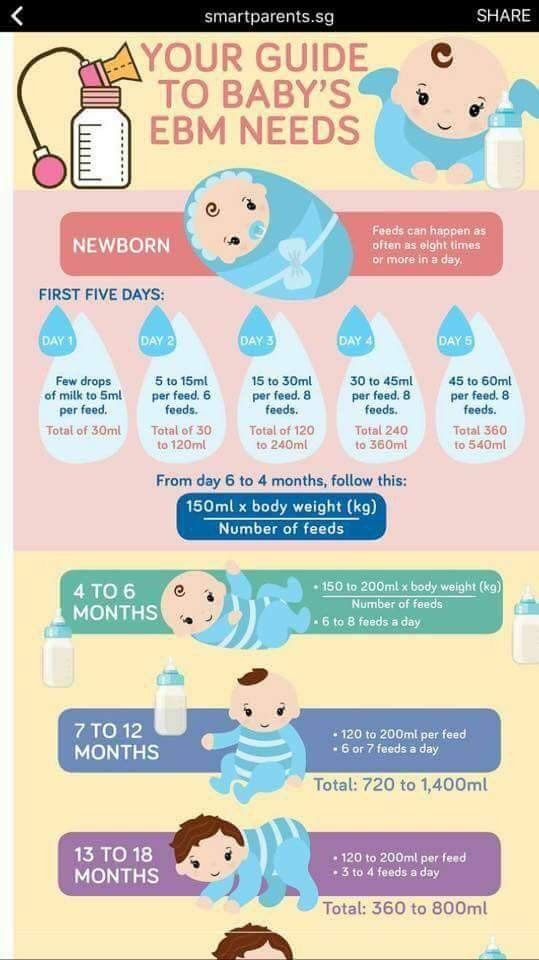 Keeping overnight feedings quiet, gentle, and dark (with minimal lighting) may also help you and your baby fall back asleep faster while avoiding long periods of wakefulness during the night.
Keeping overnight feedings quiet, gentle, and dark (with minimal lighting) may also help you and your baby fall back asleep faster while avoiding long periods of wakefulness during the night.
It may also be beneficial to help your little one understand the difference between daytime and nighttime. When he or she is sleeping during the day, be sure to go about your day as you normally would - don't draw the blinds or curtains, keep lights on and the television or other background noise at a steady volume, and wake him or her to breastfeed on their normal schedule. Between naps and breastfeeding sessions, keeping your little one entertained, engaged, and active can also help ensure he or she isn't oversleeping during daytime hours or getting their days and nights mixed up.
Finally, if you suspect that your baby or toddler is reverse cycling because of a sudden change in schedule, such as your return to work, starting daycare or preschool, or being with a babysitter for long stretches of the day, remember that he or she may simply need some extra quality time with you.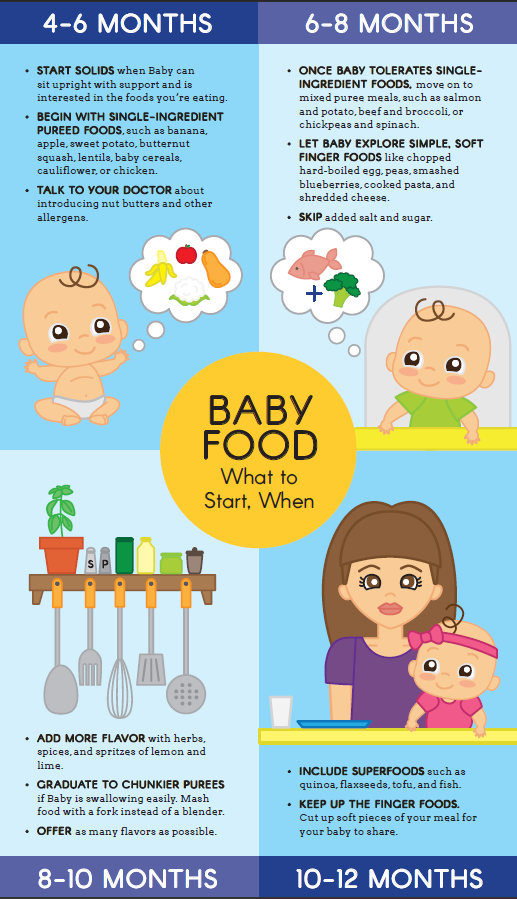 Try nursing your little one as often as possible during the daytime hours that you are together - both in the morning before work and in the afternoon or evening after work - to minimize the need for overnight feedings. It may take some time to discover the breastfeeding schedule that is most effective for both of you, but so long as your baby is gaining weight at the recommended rate and there is no significant change in their daily amount of wet diapers then you can rest assured that he or she is receiving the nourishment they need.
Try nursing your little one as often as possible during the daytime hours that you are together - both in the morning before work and in the afternoon or evening after work - to minimize the need for overnight feedings. It may take some time to discover the breastfeeding schedule that is most effective for both of you, but so long as your baby is gaining weight at the recommended rate and there is no significant change in their daily amount of wet diapers then you can rest assured that he or she is receiving the nourishment they need.
Changing a reverse cycling pattern can be challenging and even frustrating at times, but be patient with yourself and your little one! Sudden changes in your daily schedules, growth spurts, and other physical or environmental transitions often require a period of adjustment - just remember that reverse cycling doesn't last forever. Be sure to talk with your healthcare provider or pediatrician if you have any concerns about your baby or if there are indications that he or she is not receiving enough nutrition. Providing breast milk to your little one isn't always easy, but the wonderful benefits to your and your baby are well worth the occasional challenge - you're doing a great job, mama.
Providing breast milk to your little one isn't always easy, but the wonderful benefits to your and your baby are well worth the occasional challenge - you're doing a great job, mama.
Breastfeeding at night - La Leche League GB
Breastfeeding at night is one of the most discussed topics at La Leche League meetings, both in person and online. This is often because breastfeeding at night, especially in the early days, can be so important to establishing a successful breastfeeding relationship. It is also because of its inextricable link with the topic of sleep, which can be one of the biggest changes many mothers and families experience when they have a new child.
There is no doubt that caring for a new baby can be exhausting, especially if you feel you are not getting enough sleep. Understanding why breastfeeding at night is so important can help. There is a huge amount of both reliable and rather less reliable information on the internet and in countless parenting books about what infant sleep ‘ought’ to be like, and therefore what infant night-time feeding ‘ought’ to be like. This article is designed to give mothers and parents the information and reassurance they need to inform their own night-time breastfeeding approach, including some helpful tips on how to get more rest when you can.
This article is designed to give mothers and parents the information and reassurance they need to inform their own night-time breastfeeding approach, including some helpful tips on how to get more rest when you can.
Breastfeeding at night in the early weeks and months is normal and important
Babies wake to feed at night in the early weeks and months (and often beyond) for a number of important reasons. Breastfeeding at night is a vital part of establishing and maintaining a good milk supply and ensuring that newborn babies get all the milk they need to grow and thrive. Breastmilk works on a supply and demand basis: the more milk that is removed, the more milk your breasts make. For the majority of mothers, this means milk needs to be removed roughly every 2-3 hours in the early weeks. Although some babies may sleep for slightly longer periods overnight, perhaps 3-4 hour stretches, newborn babies will typically wake several times a night to feed. This also helps to ensure that you don’t get engorged breasts, which may lead to blocked ducts or mastitis.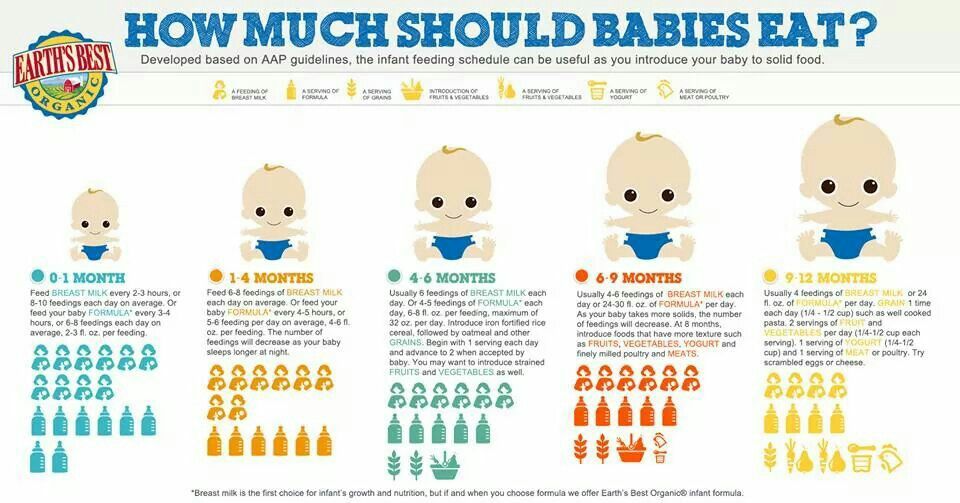
Newborn babies often wake to feed because their bodies have signalled that they are hungry. However, newborns (and babies and children of all ages) also wake at night for many other reasons, including being scared or uncomfortable, being hot or cold, feeling the need for comfort and connection, and so on. As adults, we have developed ways of meeting these needs ourselves – adjusting a pillow, having a sip of water, cuddling our partner. As babies have no way of independently meeting these needs, they rely on their mother or parent to meet them. Breastfeeding at night offers mothers a way of easily and conveniently meeting the vast majority of these needs in one go.
Lots of research shows that night waking is the biological norm for babies.i You can read more about it here as well as in Sweet Sleep, La Leche League International’s exhaustive publication on nights and naps for breastfeeding families. Research also shows that, overall, breastfeeding mothers get more sleep than mixed- and formula-feeding mothers. This is for a number of reasons, including the impact of natural hormones and chemicals released for baby and mother when breastfeeding at night. There is also a perception that babies who have formula milk sleep longer than breastfed babies. Evidence shows this is not the case.ii “Despite the common perception that supplementing an infant’s diet with formula milk or solid food will promote sleep, a recent study found that there was no difference in the frequency of night waking between breastfeeding and formula feeding infants aged 6-12 months old. Infants who received more milk or solid feeds during the day were less likely to feed at night but not less likely to wake.”iii
This is for a number of reasons, including the impact of natural hormones and chemicals released for baby and mother when breastfeeding at night. There is also a perception that babies who have formula milk sleep longer than breastfed babies. Evidence shows this is not the case.ii “Despite the common perception that supplementing an infant’s diet with formula milk or solid food will promote sleep, a recent study found that there was no difference in the frequency of night waking between breastfeeding and formula feeding infants aged 6-12 months old. Infants who received more milk or solid feeds during the day were less likely to feed at night but not less likely to wake.”iii
Breastmilk at night
Research shows that breastmilk changes all the time, in response to all sorts of things, like the needs and health of your baby, temperature, and the time of day. For most mothers, breastmilk will gradually increase in fat content throughout the day. During the evening, young babies often cluster feed, taking in frequent feeds of this fattier milk, which tends to satisfy them enough to have their longest stretch of sleep. This cluster feeding in the early months may go on late into the evening when you were hoping you would be asleep, which can naturally feel exhausting.
This cluster feeding in the early months may go on late into the evening when you were hoping you would be asleep, which can naturally feel exhausting.
Overnight, your prolactin levels – the hormone designed to support milk production – are at their highest. So, when your baby feeds frequently at night, the message to your body to boost milk supply is even stronger. Breastmilk at night is also high in the amino acid tryptophan, which in turn helps your baby to make melatonin, which is used by the body to develop its circadian rhythm (our internal system for recognising the difference between day and night) and to sleep better. Hormones produced while breastfeeding also help you to relax and fall more quickly back to sleep, which may be why you find yourself nodding off so easily while breastfeeding.
Given the fact that the hormones in night-time breastmilk help you and your baby to get back to sleep quickly, feeding babies to sleep is completely natural. A mother and baby’s bodies are designed to work in tandem this way.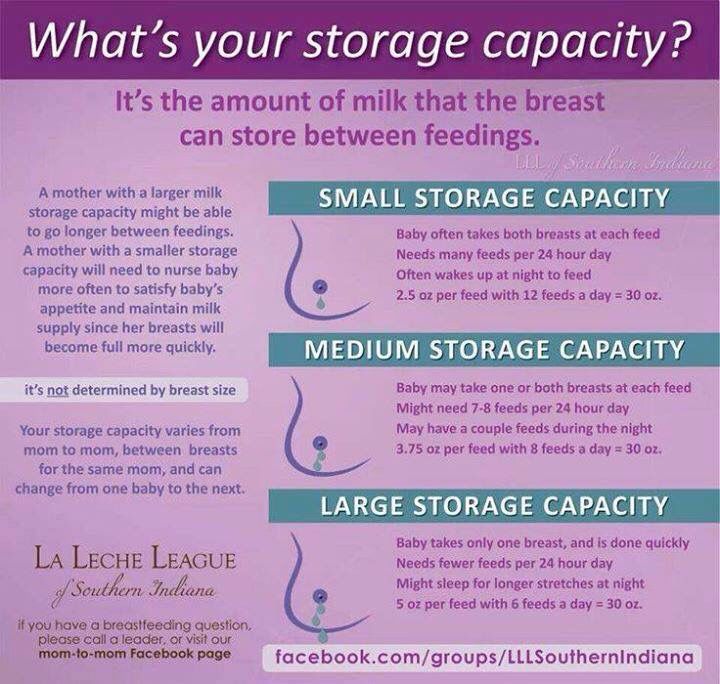 Breastfeeding your baby to sleep helps baby feel calm, safe and secure. Over time, babies stop falling asleep at the breast so easily, and eventually all babies or children stop needing the breast to fall asleep. Sleep is not a taught development, and all children get there in their own time. So, while breastfeeding to sleep continues to work, many mothers find it a wonderful, loving and responsive way to help their children doze off.
Breastfeeding your baby to sleep helps baby feel calm, safe and secure. Over time, babies stop falling asleep at the breast so easily, and eventually all babies or children stop needing the breast to fall asleep. Sleep is not a taught development, and all children get there in their own time. So, while breastfeeding to sleep continues to work, many mothers find it a wonderful, loving and responsive way to help their children doze off.
Breast-sleeping / Co-sleeping
Safely sharing a bed with your baby, or having your baby sleep very close to you in a sidecar cot or similar, is one way of getting more sleep and rest. The majority of other mammals sleep with their young, and our own infants are hard-wired to expect this too. For many breastfeeding mothers, learning to feed lying down and being able to fall back asleep safely with baby is when things start to feel a lot more manageable at night. Some mothers may start out nursing their babies at night sat up in bed, but many soon find that mastering breastfeeding lying on their side can really help everyone to get more sleep, especially as baby gets a bit older and can latch on by themselves.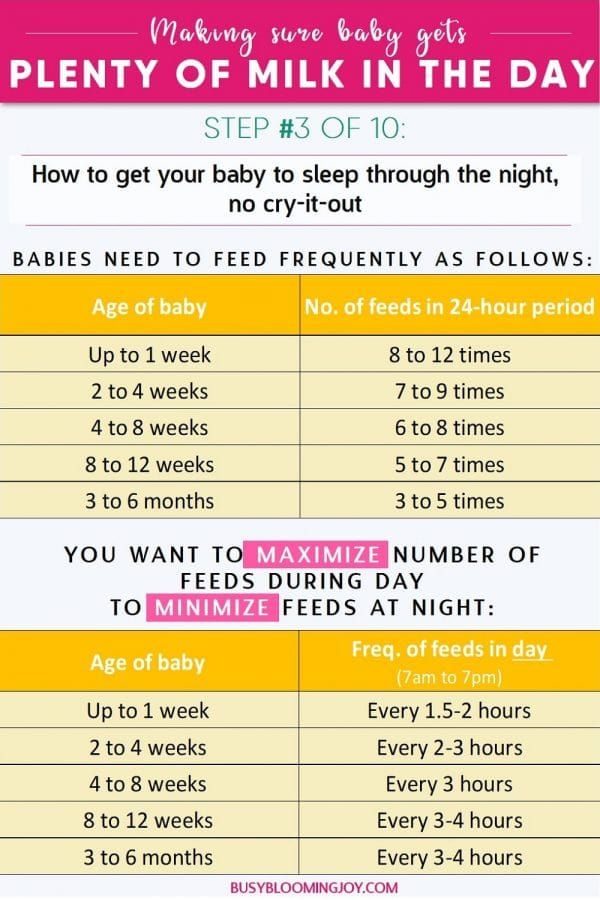 Mums can feed from both breasts when lying on one side by simply tilting their body forwards more. The same principles for getting a comfortable, deep latch apply when side-lying as when feeding upright. It may take a little practice, but overall it’s easier and less disruptive for both mother and baby at night. Research shows that breastfeeding tends to be more successful overall for mothers that co-sleep than those that keep their baby separated from them at night. You can read more about how to co-sleep or breast-sleep safely with your baby here
Mums can feed from both breasts when lying on one side by simply tilting their body forwards more. The same principles for getting a comfortable, deep latch apply when side-lying as when feeding upright. It may take a little practice, but overall it’s easier and less disruptive for both mother and baby at night. Research shows that breastfeeding tends to be more successful overall for mothers that co-sleep than those that keep their baby separated from them at night. You can read more about how to co-sleep or breast-sleep safely with your baby here
Breastfeeding at night after the early months
Many mothers go through patches where their baby may wish to breastfeed more or less at night, especially within the first year. This will be related to a whole host of reasons, including growth spurts, teething, illness, and learning new skills such as sitting, crawling and walking. Like so much else with babies and children, the frequency of breastfeeds at night is not a linear progression. Phases of increased night feedings are usually relatively short-lived and you may find that co-sleeping is a really valuable tool for managing those phases. Increased periods of waking and breastfeeding around four-six months are very common and are not a sign that your baby is hungry and needs formula and/or solids. You can read more about this in our article ‘What happens at four months’
Phases of increased night feedings are usually relatively short-lived and you may find that co-sleeping is a really valuable tool for managing those phases. Increased periods of waking and breastfeeding around four-six months are very common and are not a sign that your baby is hungry and needs formula and/or solids. You can read more about this in our article ‘What happens at four months’
As your baby gets older and bigger, you may find that night feeding becomes much easier. While in the early days you may feel the need to switch on a light or sit up in bed in order to latch your baby comfortably onto your breast, as your baby gets stronger and learns to self-latch, feeding at night can be a simple matter of rolling over and putting the breast near your baby, who will manage the rest. Night feeds often become quicker too. Some mothers use breast compressions as a way of speeding up feeds. Being able to help their older baby back to sleep quickly with a breastfeed helps many mothers get the most sleep.
Coping with the challenges
Knowing that waking at night to breastfeed is positive for our supply and our baby, and that it is the biological norm, can often be reassuring for mothers and parents. Nevertheless, sleep deprivation can be really challenging for many families. It can feel especially hard if your baby is waking more than your friends’ babies, or if they are an older baby still waking up more than you had expected.
New parents often get asked about their babies’ sleep and their approach to feeding at night. These conversations can sometimes lead to (unwanted) comments about what is normal, what you ‘should’ be doing, and how to ‘fix’ things. And if you are feeling really tired or at a low point, you may be thinking that you do need to find a ‘solution’ and try some of those suggestions. The many unhelpful sources out there setting unrealistic expectations may be undermining your self-confidence as a mother. Perhaps you’re wondering what a loving and respectful approach that suits both you and your baby would be?
First, it’s important to say that you are not alone. At any point in time there are hundreds of thousands, if not millions, of mothers up and breastfeeding their babies – of varying ages – at night. A turning point for some of them is when they are able to relax their expectations of themselves and their babies a little. Some mothers also find that being constantly reminded of when they have been woken up is actually part of the problem, and they decide to ignore the clock and not to use their phones at night.
At any point in time there are hundreds of thousands, if not millions, of mothers up and breastfeeding their babies – of varying ages – at night. A turning point for some of them is when they are able to relax their expectations of themselves and their babies a little. Some mothers also find that being constantly reminded of when they have been woken up is actually part of the problem, and they decide to ignore the clock and not to use their phones at night.
Being responsible for all the night-feeds can feel exhausting, or even unfair. Sometimes well-intentioned comments may suggest that a partner or other care-giver could feed the baby at night with a bottle. It can be useful to remember that the hormones in night-time milk make it easier for both you and your baby to get back to sleep quickly. And since the hormones in night-time milk are made at night-time, there is some evidence that giving your baby breastmilk expressed at other times does not always have quite the same effect. It is also sometimes easy to overlook the practicalities of another care-giver taking care of night-feeds. Mothers will often wake up when their baby does anyway, and may struggle to get back to sleep if they can hear their baby being upset while waiting for a bottle to be warmed up. Most mothers will also need to pump or hand express milk during the night to protect their supply and avoid engorgement, so they are often awake anyway during the time their baby is being fed by their partner.
It is also sometimes easy to overlook the practicalities of another care-giver taking care of night-feeds. Mothers will often wake up when their baby does anyway, and may struggle to get back to sleep if they can hear their baby being upset while waiting for a bottle to be warmed up. Most mothers will also need to pump or hand express milk during the night to protect their supply and avoid engorgement, so they are often awake anyway during the time their baby is being fed by their partner.
Even though breastfeeding at night may be the responsibility of the mother alone, there are lots of ways to get supported so that things feel easier. For example, sometimes dads and partners get up with the baby first thing in the morning to give mums some extra time in bed, which can make a big difference to how tired they feel. Good communication is really helpful – ask for help with other things where you can and be clear about the kind of support you need. It’s OK not to enjoy breastfeeding every second, and it’s OK to complain about being tired: that doesn’t mean you don’t want to do it, so you can explain that asking ‘Why don’t you just stop?’ is not helpful and that you’d rather be asked ‘How can I help you find time to rest today?’
If you are really struggling with tiredness, you may want to think of ways to adapt your own routines for a short while to help you get more rest – perhaps sleeping more during the day, or going to bed earlier when your baby has her first ‘longer’ stretch of sleep. It can also be a great time to join an LLL group meeting with other breastfeeding mothers, as hearing that they are experiencing the same challenges can be really reassuring. Mothers often get bombarded with unrealistic expectations of infant sleep, and it’s precisely this misalignment of expectation and reality that can cause stress.
It can also be a great time to join an LLL group meeting with other breastfeeding mothers, as hearing that they are experiencing the same challenges can be really reassuring. Mothers often get bombarded with unrealistic expectations of infant sleep, and it’s precisely this misalignment of expectation and reality that can cause stress.
Another challenge that mothers may experience (usually once their baby is a bit older) is a feeling of nursing aversion or irritability, particularly during night-time feeds. These feelings can be very normal and are often linked to tiredness or feeling ‘touched out’. You may experience them more when your baby is waking or feeding a lot more frequently, for example when teething or feeling ill. You may also experience these feelings when there is a change in your own hormones, for example, during ovulation or your period. There is some anecdotal evidence that taking magnesium supplements can be helpful. Many mothers describe these feelings as irrational and usually short-lived; they can be a sign that you need to give yourself a little ‘self-care’ – perhaps asking for some more help during the day so that you can rest or focus on yourself.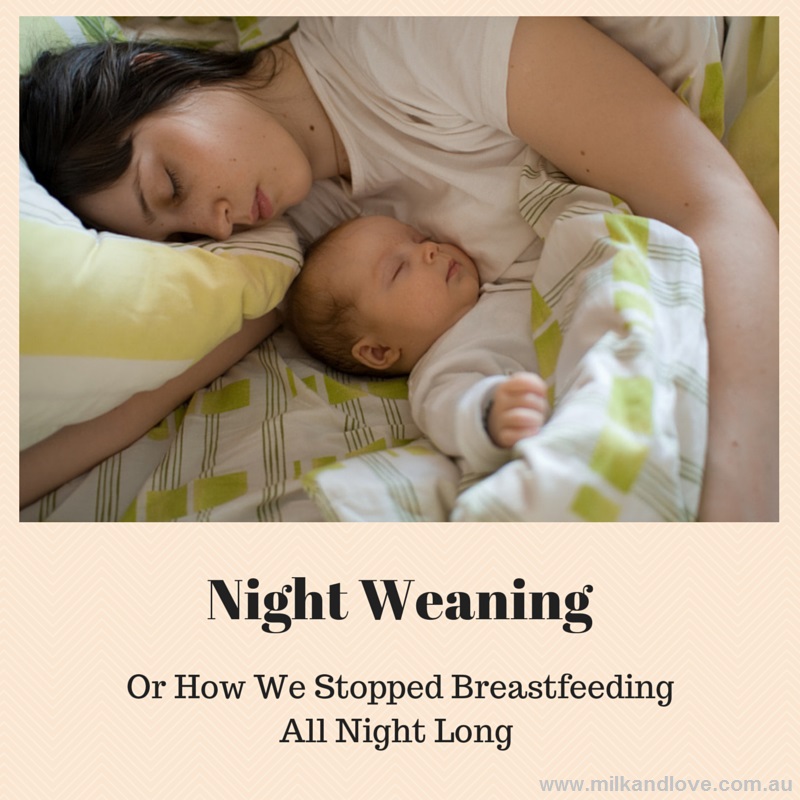
Nursing aversion can sometimes lead to feelings of guilt about not enjoying breastfeeding, and make you wonder whether it is a sign you need to stop. There are some helpful information groups on social media where mothers share their nursing aversion experiences, as well as tips and tricks that helped them overcome those feelings. Like anything in life, you may not enjoy breastfeeding every moment of every day; that’s OK. Take things one day at a time, listen to your body and your baby.
Stopping breastfeeding at night
Breastfeeding at night meets a baby’s needs in a variety of ways. For many mothers, it’s the easiest way to settle their baby back to sleep when they wake at night, and they continue to use it for as long as it continues to work. It is not a bad habit and all babies eventually fall asleep and stay asleep without the breast. You may decide that you are happy with breastfeeding back to sleep, but you are feeling pressured by others’ expectations about what your baby ‘should’ be doing.
Some books suggest that after six months babies no longer need night feeds. Not only is this an arbitrary figure, taking little account of the different circumstances of different babies and families, but it also has no evidence to back it up. Sometimes, mothers worry that breastfeeding at night is what is causing their baby to wake up several times. This is not the case. Babies wake for lots of reasons and it is better to think of breastfeeding as a tool that meets the vast majority of those needs. Some sources claim that babies after a certain age don’t ‘need’ breastmilk at night any longer, but breastfeeding goes on meeting a baby’s needs for a long time. Many babies will continue to need the calories from night-time breastmilk, as well as all the other comforts that it brings, for some time after six months, and sometimes well beyond.
Some families may feel that their baby is ready to cut some breastfeeds at night or stop breastfeeding at night altogether. Generally speaking, the evidence seems to suggest that night-weaning is best left until after around 18 months. Many mothers find that gently cutting down feeds at this point is much easier, as the baby is learning to talk and the mother can help to explain any changes. There is helpful information about approaches to cutting down night feeds here. Any changes are best approached gradually and respectfully, so that you can preserve the important close connection to the baby at night-time. As your baby gets older, you will discover ways of being responsive to their needs at night that might not include offering your breast every time. For example, you may find that you are able to try other things like rocking, patting and shushing before offering the breast. These may not work initially, but over time, as your baby develops, you may find that in some cases these soothe him back to sleep. As always, you are the expert on your baby and you’ll be able to assess whether your child is ready to stop breastfeeding at night, or whether it would be easier to try night weaning later on.
Many mothers find that gently cutting down feeds at this point is much easier, as the baby is learning to talk and the mother can help to explain any changes. There is helpful information about approaches to cutting down night feeds here. Any changes are best approached gradually and respectfully, so that you can preserve the important close connection to the baby at night-time. As your baby gets older, you will discover ways of being responsive to their needs at night that might not include offering your breast every time. For example, you may find that you are able to try other things like rocking, patting and shushing before offering the breast. These may not work initially, but over time, as your baby develops, you may find that in some cases these soothe him back to sleep. As always, you are the expert on your baby and you’ll be able to assess whether your child is ready to stop breastfeeding at night, or whether it would be easier to try night weaning later on.
Conclusion
Having a baby, and eventually a toddler, can of course be exhausting. Since responding to your baby’s intense needs at night can feel overwhelming, being able to access reliable information about infant sleep and night-time feeding behaviour can help you adjust your expectations. You may be happy breastfeeding your baby back to sleep as often as needed, yet you may feel pressured by well-meaning comments from friends and family about what your baby’s sleep ‘should’ be like. Sometimes spending time with others who understand what you’re going through, and who are supportive or your choices, can help you feel confident to make the decisions that work for you. Chatting with other mothers at a La Leche League meeting, in person or online, about what they found helpful, and exchanging ideas for getting more sleep may help you decide what’s right for you and your baby. Never forget that you know your baby best!
Since responding to your baby’s intense needs at night can feel overwhelming, being able to access reliable information about infant sleep and night-time feeding behaviour can help you adjust your expectations. You may be happy breastfeeding your baby back to sleep as often as needed, yet you may feel pressured by well-meaning comments from friends and family about what your baby’s sleep ‘should’ be like. Sometimes spending time with others who understand what you’re going through, and who are supportive or your choices, can help you feel confident to make the decisions that work for you. Chatting with other mothers at a La Leche League meeting, in person or online, about what they found helpful, and exchanging ideas for getting more sleep may help you decide what’s right for you and your baby. Never forget that you know your baby best!
Written by Rhiannon Butterfield, LLL Cambridge. February 2021
Endnotes:
i Baby Sleep Info Source (BASIS) – Durham University
ii Brown A, Harries V. Infant Sleep and Night Feeding Patterns During Later Infancy: Association with Breastfeeding Frequency, Daytime Complementary Food Intake, and Infant Weight. Breastfeeding Medicine. 2015;10(5):246-252.
Infant Sleep and Night Feeding Patterns During Later Infancy: Association with Breastfeeding Frequency, Daytime Complementary Food Intake, and Infant Weight. Breastfeeding Medicine. 2015;10(5):246-252.
iii https://gpifn.org.uk/sleep-and-safe-sleeping/
Further reading:
Safer Sleep and the Breastfed Baby
I need some sleep!
LLLI: Safe Sleep Seven
The reasons why nightwaking is the biological norm
Letting babies cry: the science behind the studies
Sweet Sleep available in our LLLGB Shop
until what age to feed a baby at night
Breast milk is the ideal food for babies, so every mother should strive to maintain breastfeeding for as long as possible. But if for some reason it is impossible, it is important to choose high-quality breast milk substitutes and the optimal feeding regimen, close to the natural rhythm of breastfeeding. The younger the baby, the more often he needs food. Newborn children need to be fed several times at night, older children, from about six months, once.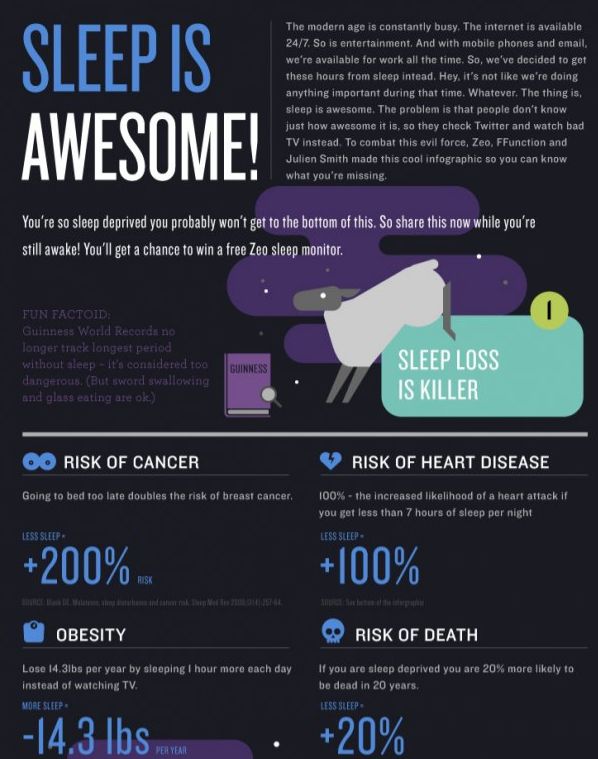 After a year, children can already sleep at night without waking up for feeding.
After a year, children can already sleep at night without waking up for feeding.
Why do newborns eat at night?
In the womb, the baby receives nourishment through the umbilical cord continuously, without separation between day and night. After birth, the volume of the baby's stomach is very small, so he cannot get enough nutrients and vitamins and minerals at one meal. Therefore, the baby needs to eat often, in small portions, so that there is no regurgitation and digestive problems.
Another argument in favor of frequent feedings is a very intensive metabolism in an infant. This is necessary to provide the body with the necessary building blocks and energy during a period of very rapid growth and development. In the first year of life, growth processes are maximum in speed, and in order for a baby to triple its weight by a year and grow by 50% of its original height, it needs to eat often and a lot.
Proper nighttime feeding of babies
Even 20 years ago there was a recommendation to maintain a break at night (from midnight to six in the morning), not to feed the baby. This was explained by the fact that the stomach needs rest, and you need to “deceive” it with some water or give it a pacifier. But today it is already known for sure that the stomach is equally active both during the day and at night. In early childhood, circadian rhythms have not yet been formed and the digestive system works around the clock.
This was explained by the fact that the stomach needs rest, and you need to “deceive” it with some water or give it a pacifier. But today it is already known for sure that the stomach is equally active both during the day and at night. In early childhood, circadian rhythms have not yet been formed and the digestive system works around the clock.
Today, doctors recommend feeding a newborn on demand - he himself determines when to eat and how much milk to suck out for feeding. In the first 2-3 months, a child can wake up up to 3-4 times a night (between 9 pm and 6 am) to attach to the breast, up to six months - up to three times, after six months - once, less often twice.
- When breastfeeding, it is recommended to feed the baby on demand, including at night, giving up the practice of "hungry" motion sickness, the use of pacifiers or water.
- For mixed-fed babies at night, breastfeeding should be preferred. This will also help stimulate lactation in order to increase the amount of milk secreted during the day.

- Formula-fed infants should be fed every 3 hours. Let's say a break of 4-5 hours if this is a child older than 3-4 months.
Until what age should I feed my baby at night?
Many parents think that as complementary foods are introduced, the baby no longer needs nighttime feedings, because he can be fed during the daytime. Yes, of course, the baby already receives more dense food - vegetable, cereal, meat complementary foods. But this does not mean at all that he will not want to eat at night.
In the daytime, children eat a variety of complementary foods, and at night they have a need to attach to the breast, to get enough of breast milk. After all, the number of attachments to the breast in the daytime gradually decreases, and babies can compensate for this by waking up at night to feed.
If a child is breast-fed, he may have 1 to 3 nightly feedings until the end of lactation (to fall asleep, actually at night, to calm down and fall asleep). If a child is on artificial nutrition, after a year, milk formulas are almost replaced by other products. Most often, children drink cow's milk or fermented milk products at night, special mixtures for children of the second year of life (“threes” or “fours”).
If a child is on artificial nutrition, after a year, milk formulas are almost replaced by other products. Most often, children drink cow's milk or fermented milk products at night, special mixtures for children of the second year of life (“threes” or “fours”).
Most children under three wake up at least once during the night to eat. This is quite normal and does not require any radical intervention from the parents.
Should my baby be weaned from night feedings?
This issue is quite complex and it is solved individually. Up to a year, if the child himself does not refuse night feedings, they should not be removed. After a year, this issue must be addressed individually, based on indicators of height and weight, the level of physical and neuropsychic development. If the baby was born prematurely or gained weight at the lower limits of the norm in the first year of life, it is worth leaving feeding in the second year so that the child receives more nutrients for growth and weight gain.
If a decision is made to wean a child from night feedings, one should not take radical measures, arrange battles with crying and tantrums. It is not worth practicing methods of the “cry and stop” type, they negatively affect the psyche, disrupt the baby’s sleep, provoke capriciousness, irritability. Night tantrums will not benefit other family members either.
To wean a baby from night feedings, it is necessary to create conditions when the child does not want to eat during the night. This is achieved by eating porridge in the evening, before going to bed. Complex carbohydrates are absorbed slowly, so the baby stays full longer, can sleep through the night without waking up. New, unfamiliar complementary foods should be introduced in the morning to help reduce the risk of negative reactions to food that occur at night and disrupt sleep. You should not give your child meat dishes at night, as they contain protein compounds that are heavy enough for digestion.
Sometimes children wake up at night not because they are hungry, but because they are thirsty. Dry and warm air leads to drying of the mucous membranes, which causes dryness in the mouth, thirst arises. Therefore, when the crumbs wake up, you can drink it with water at room temperature. If the baby fell asleep and does not wake up anymore, it's not about hunger. If after a few minutes he wakes up again - you need to feed the baby.
Dry and warm air leads to drying of the mucous membranes, which causes dryness in the mouth, thirst arises. Therefore, when the crumbs wake up, you can drink it with water at room temperature. If the baby fell asleep and does not wake up anymore, it's not about hunger. If after a few minutes he wakes up again - you need to feed the baby.
Night feedings until what age - what time to wean a child from night feeding
10/29/2016
349357
410
Feeding and sleep
6–9 months --18 months
Author
Babysleep
Team Babysleep
Consultants for Snape, Doctors, Psychologists, Psychologists, Consultants for GV
Everyone knows that frequent nighttime awakenings, when a newborn needs to be comforted or fed, is a natural part of motherhood. How pleasant it is to hug a child in the silence of the night and attach it to your chest! But one day there comes a moment when the uninterrupted sleep of the baby and mother becomes more important than nightly breastfeeding.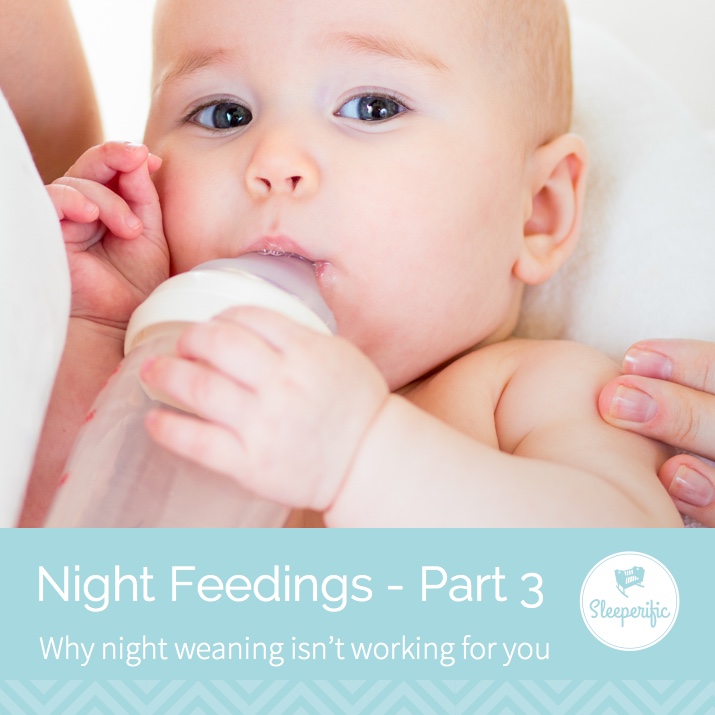
Child crisis calendar
Night feeds: until what age?
Many parents are interested in night feedings: until what age should they be kept? When should a child be weaned from night feeding? In this article, we present the opinion of our American colleagues on breastfeeding. Their recommendations may need tweaking, but it's certainly an interesting take on the issue.
BabySleep considers it necessary to emphasize that reducing nighttime feedings at any age does not in any way mean a complete rejection of breastfeeding, unless the mother has such an intention. This is just a reduction in the number of attachments to the chest during a night's sleep. The mother can still continue breastfeeding even if the number of nightly feedings is reduced.
It is also important to remember that breastfeeding is not only a process of satiating the child, but also a time of physical and emotional closeness between mother and baby. In some situations, this factor is of paramount importance and it is not worth reducing the number of feedings.
What do doctors say?
Many children continue to wake up for night feedings from one to several times a night, although, due to their age, they are already able to sleep for a long period of time without waking up. The reason is that they are used to getting calories at night. Very often, nighttime awakenings and the need to breastfeed in order to fall asleep again are caused by an association with falling asleep. This means that when you wake up at the end of your sleep cycle (every 40–90 minutes), the baby simply cannot fall asleep again without sucking, even if at that moment he is not hungry. Some children only need to take a few sips to calm down, and someone eats, consuming calories that the body does not need at that moment.
When the baby wakes up to satisfy his hunger, he actively sucks and swallows for at least 5 minutes or drinks more than 60 ml. milk from a bottle. If there is an association to fall asleep, or if the baby needs to breastfeed to calm down, the baby sucks out only a little milk.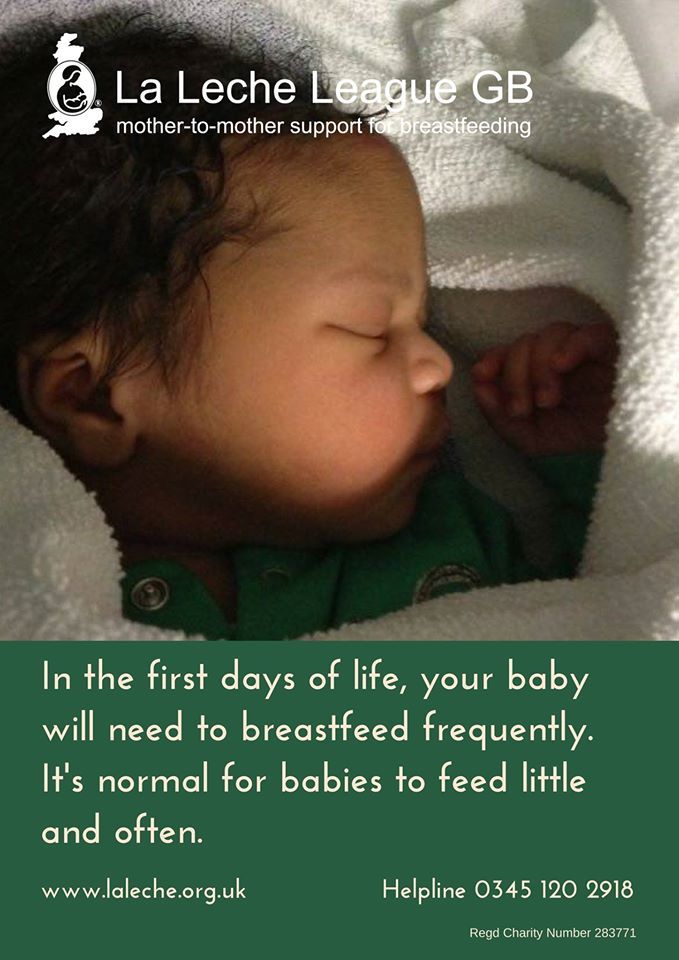 If the baby is really hungry at night, it is not recommended to drastically reduce the number of nightly feedings. If the child is hungry, he must be fed!
If the baby is really hungry at night, it is not recommended to drastically reduce the number of nightly feedings. If the child is hungry, he must be fed!
How many nightly feedings does a child need?
Before cutting down on a baby's nighttime feedings, the mother should make sure that the baby is ready for it and that her expectations are realistic. If there are no problems with lactation, the baby is healthy, calm, eats well during the day and is gaining weight, you can simply use the table as a guide, which indicates the number of nightly feedings recommended by American baby sleep experts.
Talk to your doctor before starting to cut down on nightly breastfeeding. It is also important to consider the age of the child depending on the EDD (estimated date of birth). If the baby eats at night more often than indicated in the table, but sleeps well, and it suits you, there is no problem. If your baby is eating less often, but your pediatrician is happy with how he is growing and gaining weight, you are doing great too!
The recommendations in this article are for those mothers who are worried about the fragmented sleep of the child due to the fact that the baby often eats at night.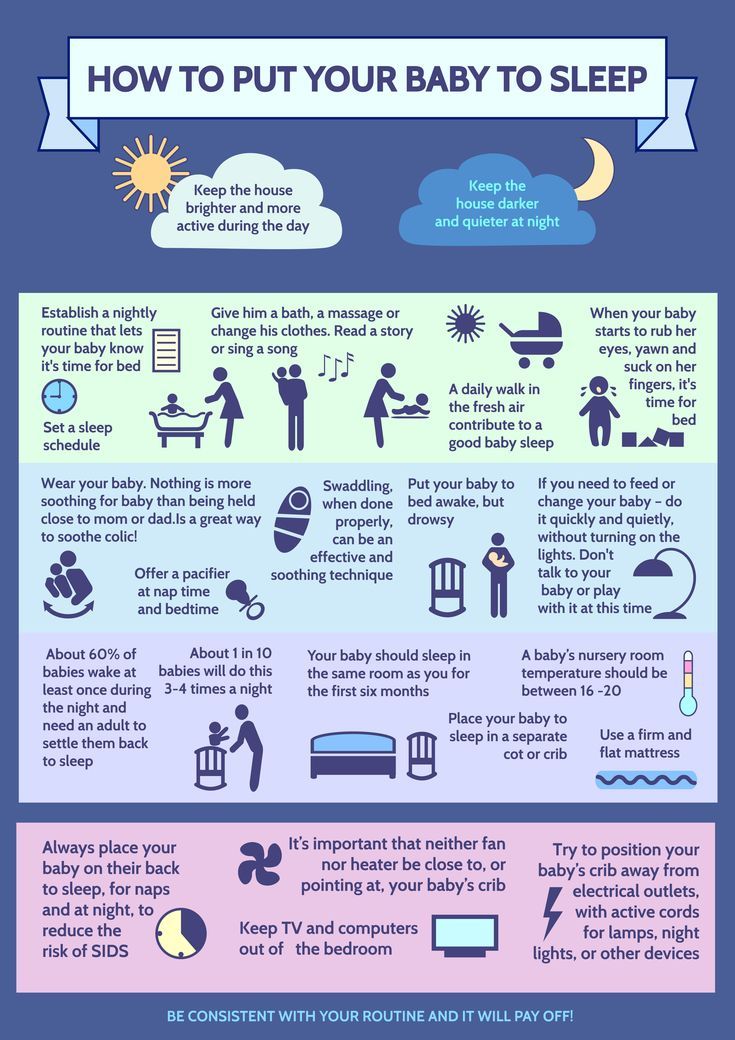
Until what age should night feeds be continued?
Children's nutritional needs differ, but you can focus on the average data from the table:
When should a child be weaned from night feedings?
A child's readiness to reduce night feedings can be checked by answering the following questions:
- Is your baby 6 months old or older and eating solid foods well?
- Was the baby born at term with a normal weight?
- Does the baby need night feedings, rather to calm down than to satisfy the feeling of hunger (applications are very short)?
- Feeding for a baby is an association for falling asleep, does he not know how to calm down and fall asleep himself during daytime and nighttime dreams, does he often wake up at night?
- Is co-sleeping a forced measure for you because of the association for the baby to fall asleep (see paragraph 4)?
- Do all family members lack sleep and feel constantly tired (as a result of points 4 and 5)?
- Are night feedings erratic (time and number of awakenings vary each night)?
- Does your child eat more at night than during the day?
- In the past, has the baby been able to sleep for three or more days in a row for long periods of time without feeding, or with one feeding between 22:00 and 24:00 (not during illness, etc.
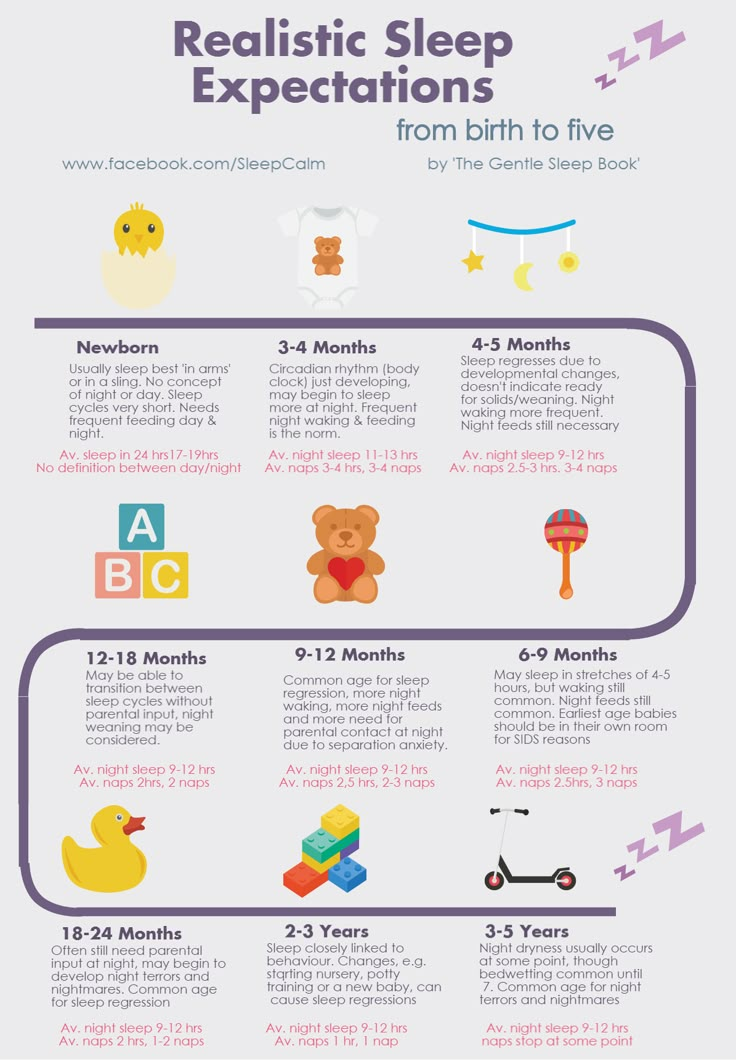 )?
)? - Does the baby eat once a night - at 3-4 in the morning - and constantly refuses morning feeding?
If the majority of answers are yes, this shows the child's readiness to reduce the number of nightly attachments.
Reduced night feedings. Where to begin?
If you can't tell exactly what time and how long your child eats at night, watch him for 2-3 nights. When you see patterns in nightly breastfeeding, you can draw up a work plan and gradually wean the baby from breastfeeding.
- Start with feedings in the first hours of sleep, when the baby has not yet had time to get hungry.
- If nighttime breastfeeding is associated with falling asleep for your baby, separate breastfeeding from the process of falling asleep—feeding before bed to soothe and relax, and then falling asleep without suckling.
- Reduce the time your baby spends at the breast at night, or reduce the amount of milk in the bottle.






